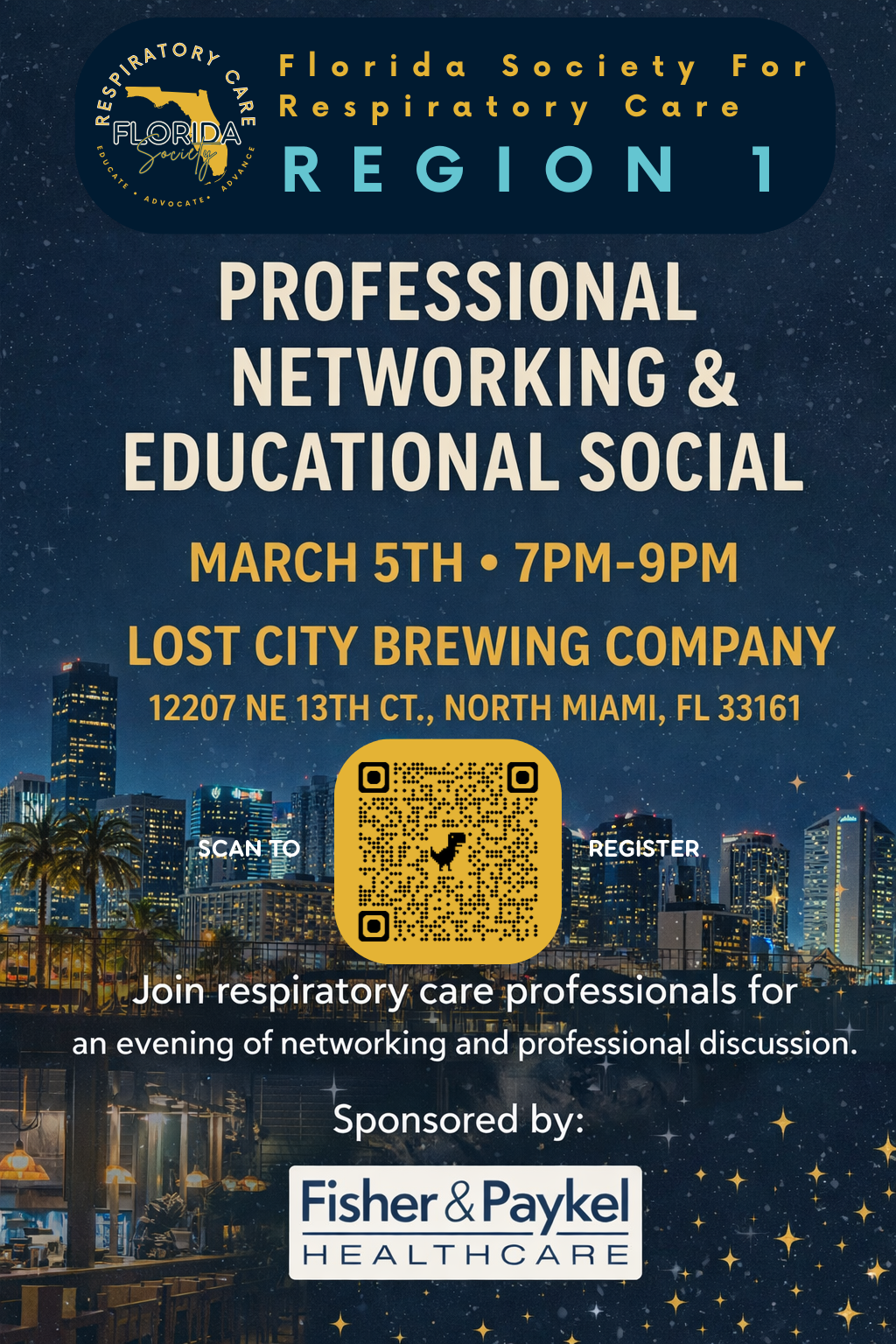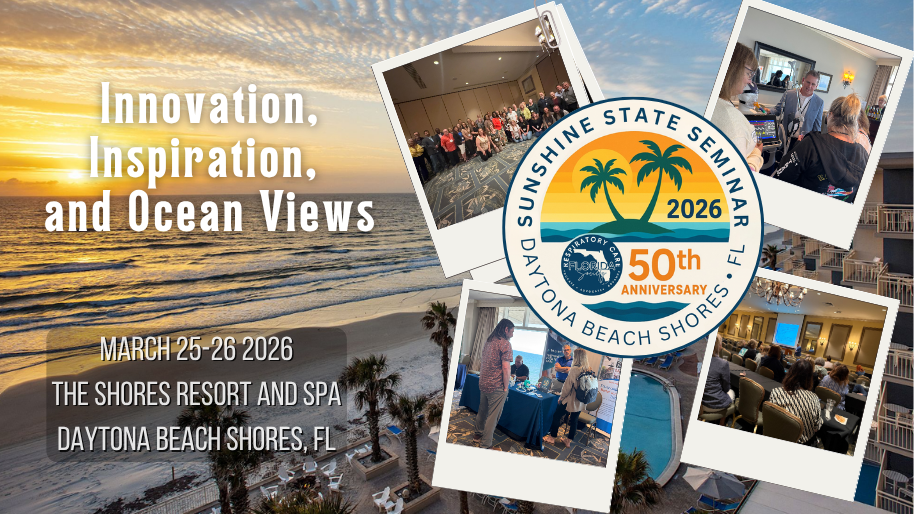|

Region 1 — SOCIAL EVENT

Sunshine State Seminar 2026 – Celebrating 50 Years of FSRC Excellence!
Join us for the Florida Society for Respiratory Care’s 50th Anniversary Celebration at the Sunshine State Seminar 2026, happening March 25–26, 2026 at the beautiful Shores Resort & Spa in Daytona Beach Shores, Florida.
This milestone event will unite respiratory care professionals, educators, students, and industry partners from across Florida for two unforgettable days of education, innovation, and celebration—all set against the stunning Atlantic shoreline.
What to Expect
- Engaging educational sessions and hands-on workshops
- Inspiring keynote speakers and leadership panels
- A vibrant exhibit hall featuring the latest in respiratory care technology
- Networking opportunities and special 50th anniversary social events
- An oceanfront venue designed for both learning and relaxation
Early Registration Discounts Available!
Register early and take advantage of special reduced rates for attendees and exhibitors. Early registration ensures the best pricing and priority access to event activities and hotel accommodations.
Event Dates: March 25–26, 2026
Location: The Shores Resort & Spa, Daytona Beach Shores, FL
Come celebrate 50 years of advancing respiratory care in Florida — and be part of shaping the future for the next generation of leaders.
Learn more about Sunshine State Seminar 2026 and Register using the link below.
2026 SSS Information and Registration
|